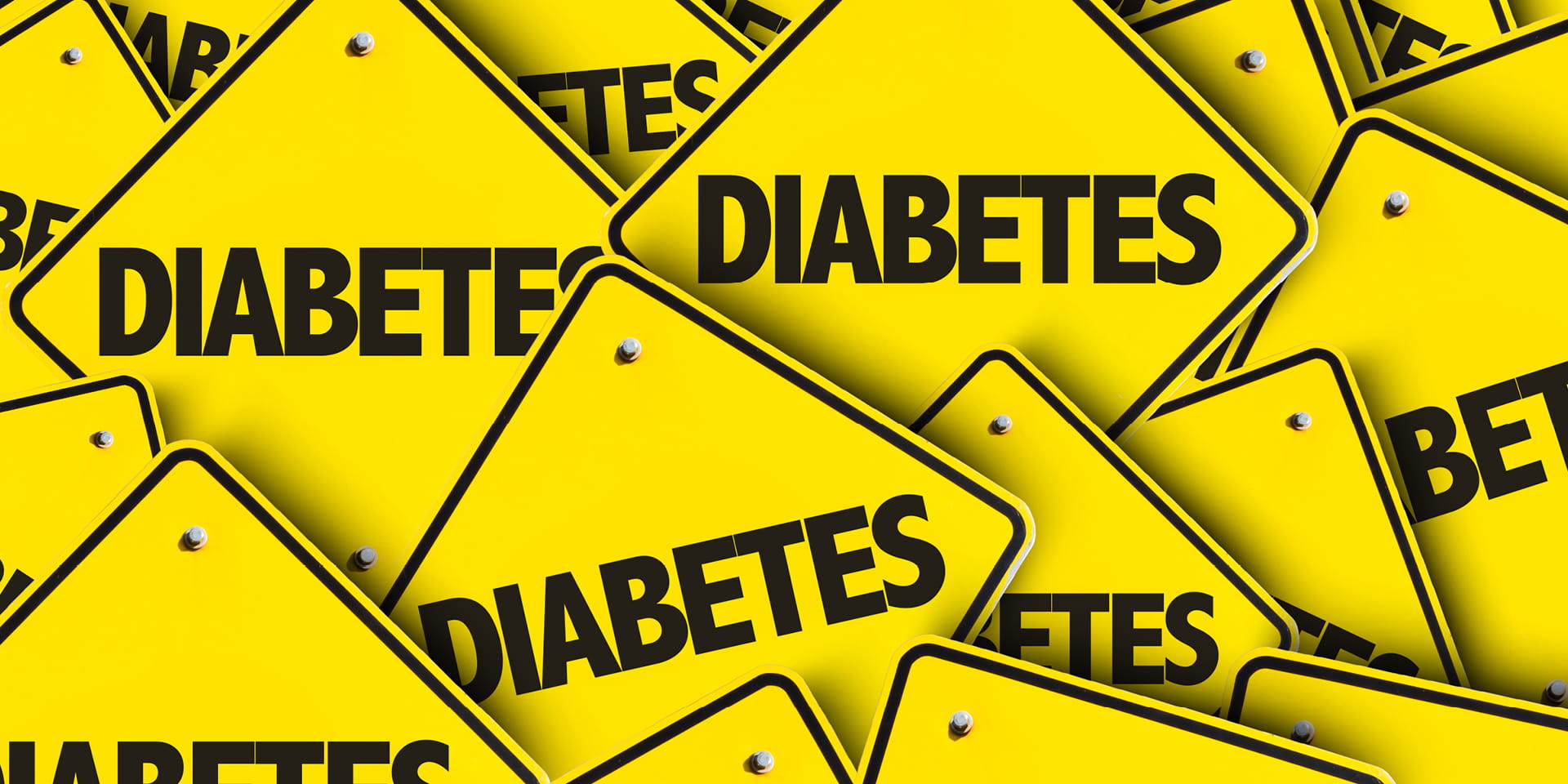Diabetes is a chronic disease that occurs when blood sugar (also known as blood glucose) is too high. Glucose at normal levels is a necessary source of fuel for the body. Blood sugar levels that are too high can over time damage the body and lead to a variety of health problems including:
- heart disease
- stroke
- neuropathy (nerve damage that causes weakness, numbness and pain)
- vision loss
- weakened immune system and increased risk of infections
- kidney disease or kidney failure
- slow wound healing that can lead to amputation
Calculate Your Risk for Developing Diabetes
For some people, the warning signs of diabetes can be so mild that it goes undetected and is only discovered after long-term damage has been done to the body. According to the American Diabetes Association, over 7 million people with diabetes are undiagnosed, and 1 in 3 American adults are at risk for developing type 2 diabetes. This is why the American Diabetes Association has developed an easy quiz to help people calculate their risk of developing diabetes.
Answer these simple questions and add up your score:
How old are you?
Less than 40 years (0 points), 40 - 49 years (1 point), 50 - 59 years (2 points), 60 years or older (3 points)
Are you a man or a woman?
Man (1 point), Woman (0 points)
If you are a woman, have you ever been diagnosed with gestational diabetes?
Yes (1 point), No (0 points)
Do you have a mother, father, sister, or brother with diabetes?
Yes (1 point), No (0 points)
Have you ever been diagnosed with high blood pressure?
Yes (1 point), No (0 points)
Are you physically active?
Yes (0 points), No (1 point)
What is your weight status?
Diabetes Risk Test (pdf)
Now add up your score
If you scored five or higher you are at increased risk for having type 2 diabetes. However, only your doctor can tell for sure if you do have type 2 diabetes or prediabetes (a condition that precedes type 2 diabetes).
I May Be At Risk. Now What?
It is important that you talk to your doctor to see if additional testing is needed to confirm the diagnosis. Please know that making small changes to the way you eat, increasing your physical activity levels or getting early treatment can, for some, actually return blood sugar levels to a normal range. So, take a breath—and then take action.
Take Action!
The comprehensive diabetes services at Doylestown Health connects a diverse team of skilled experts with patients and their families, providing counseling, treatment and education.
Doylestown Health also offers a variety educational programs recognized by the American Diabetes Association, including diabetes education classes, pre-diabetes classes and ongoing support groups.
Call 215.345.2168 for more information.
About Doylestown Health's Diabetes Services
Our Diabetes team is committed to providing patients and their families with the highest quality of care. Our skilled team offers a wide array of services, including diabetes education, nutrition counseling, diabetes medication management, glucose monitoring, insulin pump management, and support groups. We take a collaborative approach to care, working with specialists in various disciplines to deliver personalized treatment, designed to meet each individual's needs.
